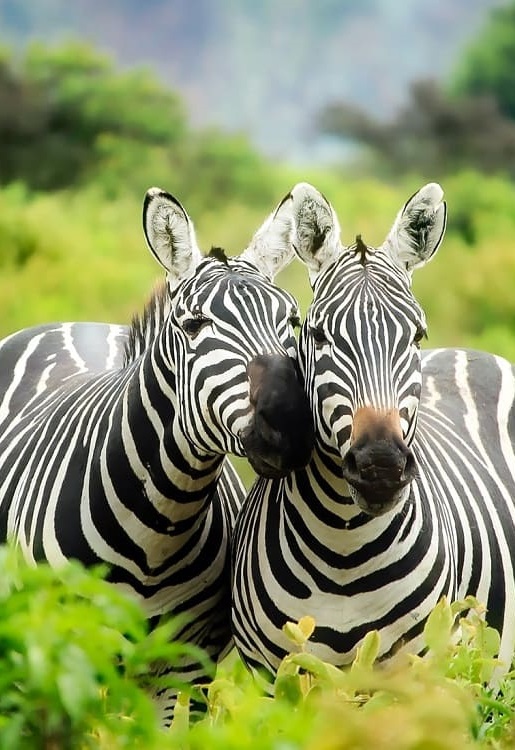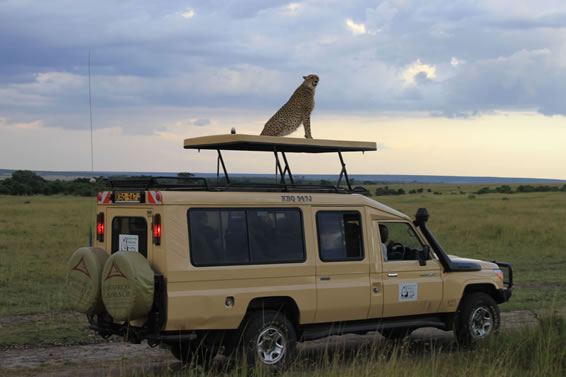Best News For Picking Park Funzi
Wiki Article
What Security And Safety Concerns Should I Consider Before Going To Mombasa, Kenya For A Trip?
When holidaying in Mombasa, Kenya, being conscious of security and safety aspects is essential for the most enjoyable and hassle-free holiday. These are the most crucial points to keep in mind.
1. General Security
Keep up-to-date. Keep abreast of local news and travel warnings from your country of residence.
Register at Your Embassy.
2. Health Precautions
Immunizations: Make sure you stay up-to date with routine vaccinations. You may want to consider additional vaccines, such as Hepatitis A and B along with Typhoid and Yellow Fever.
Mombasa has a high prevalence of malaria. Make use of antimalarial medications and insect repellents. Stay in bed under mosquito nets. Wear long sleeves.
Food and water safety. Drink bottled water and avoid ice. Be cautious with street food.
3. Personal Safety
Avoid walking alone at night Avoid areas that are well-lit and densely populated areas. Avoid walking at night on the beach and in areas with a secluded.
Secure your Valuables. Utilize hotel safe deposit boxes for valuables, like passports and money. Avoid displaying valuable items like jewelry and electronics.
Use Reputable Transportation: Choose certified taxis or ride-hailing companies. The hotel may organize transportation. Beware of taxis that aren't clearly marked.
4. Local Laws and Customs
Dress respectfully and modestly Particularly when visiting holy sites. Be aware of local cultural norms.
The laws governing Kenyan drugs are strict and punishable by severe penalties. Do not consume illegal substances.
Get permission prior to taking photographs of people living in rural areas and military buildings or government offices.
5. Beach and Water Safety
Safety in swimming means paying attention to the local guidance on conditions and currents. Make sure you are in designated swimming areas.
Marine wildlife: be cautious of marine creatures such as jellyfish and sea urchins. When walking on the beach, wear appropriate footwear.
6. Crime Prevention
Petty crime: Bag snatching and pickpocketing is commonplace, particularly in places that are crowded. Stay alert and close to your belongings.
Beware of people who offer extravagant assistance or discounts that seem too good to be true. Use only licensed tour operators.
Emergency Contacts: Learn the emergency numbers for your local area such as Police (999), Fire (999) and Ambulance (999). You should always have the contact information of your country’s embassy and consulate in your mind.
7. Natural Hazards
Weather: Mombasa's climate is tropical, and could lead to heavy rains or flooding, especially in the rainy months (April-June) and from October to November. Be aware of forecasts for weather.
Sun Protection: Apply sunscreen, put on a hat, and drink plenty of water to guard from heat exhaustion and sunburn.
8. Travel Insurance
Comprehensive coverage. Check that the travel insurance you purchase provides protection for medical emergencies, theft and loss, in addition to travel disruptions. Examine the coverage in your insurance policy for sports like water sports.
By keeping these safety and security considerations in mind, you will be able to better enjoy your trip to Mombasa without worry. Follow the top rated transfer to Diani for more advice including kenya travel packages, tour company in kenya, tours and safaris in kenya, safari mombasa kenya, kenya mombasa holiday packages, tour company, african safari tours kenya, beach in mombasa, mombasa travel agency, safari excursions and more.

What Weather Considerations Do I Need To Be Aware Of When I Am Traveling To Mombasa, Kenya?
When planning a holiday in Mombasa, Kenya, understanding the local weather patterns is essential to pack appropriately and make the most of your trip. Here are some important aspects to take into consideration:
1. Climate Overview
Mombasa's tropical climate is hot and humid all year. Expect warm weather with temperatures that range from 24degC (75%F) to 32 degrees Celsius (90%F).
2. Seasons
Hot and Humid Season (November to April): This period is characterized by extreme temperatures and humidity. It's also a busy tourism season, especially in January and December.
Long Rains (April - June) This time of year brings heavy rainfalls, and at times, thunderstorms. Roads can get slippery and difficult to navigate. The season is not busy for tourists.
The cooler season (June to October): This is the most pleasant time to visit, with lower temperatures and humidity levels. The weather is generally pleasant, which makes it a great time for outdoor activities.
Short Rains: In this period there are less and less severe rain showers. The rains are usually brief, and then followed by sunshine.
3. Packing Tips
Pack light, breathable clothing like linen or cotton to keep cool during hot conditions.
Rain gear: If you are you're traveling in the rainy season make sure you have a waterproof jacket as well as an umbrella and waterproof footwear.
Sun Protection: Sunscreen that has an SPF of high, a wide-brimmed hat sunglasses, and clothing that cover your skin will provide protection from the intense sun.
Swimwear: Make sure you bring your swimsuit when visiting the hotel pools and beaches.
4. Weather Specific Activities
Beach Time: The best time for beach activities is during the cooler months (June to October) when the weather is warm and the conditions for swimming are ideal.
The calm and clear water is perfect for snorkeling, diving, and other water sports from November through March.
Wildlife viewing The cooler months (June to Oct) are perfect for safaris or excursions into the wild, since it's more comfortable.
5. Things to Consider for Health
Hydration: The hot and humid climate demands you to drink plenty of water. Drink plenty of water especially when you are spending time outdoors.
Heat-Related Illnesses: Be aware of the risk of heatstroke and exhaustion. Wear loose clothing and frequent breaks in the shade. Avoid intense exercise during heat peak.
6. Travel Adjustments
Be aware of delays if you plan to travel during rainy season. You may find that some roads are not accessible and outdoor activities may be restricted.
The rainy season can lead to flight delays. Keep yourself informed of your travel plans and make contingency plans.
7. Environmental Concerns
Natural Risks. Be aware of the risks associated with heavy rainfall. Be aware of the current weather conditions, and take local advice regarding safety.
Be aware of tides while making plans for beach activities. They can change dramatically. Consult local tide charts for safe beachcombing, swimming, and many other activities.
Understanding the weather's conditions will allow you to plan your activities and pack appropriately, so that you can enjoy your trip in Mombasa in peace. Have a look at the top airport transfers kenya for website tips including safari mombasa kenya, african safari excursions, kenya tours and safaris, mombasa travel agency, kenya travel packages, trips to kenya, travel tour companies, kenya safaris and tours, kenya travel, africa tours and safaris and more.

What Safari And Tour Planning Should I Know Before My Trip To Mombasa?
When you're planning a tour or safari in Mombasa Kenya it is important to think about all the elements that will make your trip memorable. Here are a few important points to remember:
1. Choose an Safari Tour Operator
Choose a tour operator that has a good track of success. Look for operators accredited by the Kenya Association of Tour Operators (KATO).
Review the different packages offered by tour companies. Packages range from budget-friendly to luxurious and can differ in terms and the activities that are included.
Guides: Check that the tour operator has expert, knowledgeable guides. They should be certified by relevant associations.
2. The most sought-after Safari Destinations from Mombasa
Tsavo: Tsavo West is one of Kenya's largest game reserves. Tsavo West is split into two parts, Tsavo West East. The park is known for its variety of wildlife, including rhinos and elephants and lions.
Amboseli National Park, famous for its elephant herds that are large. The park also provides stunning panoramas of Mount Kilimanjaro.
Shimba Hills National Reserve - Close to Mombasa. It has beautiful landscapes, and rare species, including the Sable antelope.
Maasai Mara. Although further than Mombasa, the Great Migration is celebrated in the Maasai Mara region and offers an unforgettable wildlife experience.
3. Safaris and Tours - Types
Game Drives: Traditional safaris are game drives on 4x4 vehicles that allow close encounters with wildlife.
Walking Safaris: Walking tours with guides offer a unique opportunity to explore the bush and learn about smaller flora and fauna.
Balloon Safaris. These are offered in certain parks, such as the Maasai Mara. You have the opportunity to see from a bird's eye view.
Combinations of bush and beach: Combine time at the beach and safari to create a unique experience.
Cultural Tours: Includes excursions to villages in the area or historical sites such as Fort Jesus, Mombasa Old Town and Fort Jesus.
4. Timing and Duration
Best time to visit: The dry season (June-October) is the best season to view wildlife, since animals tend to gather close to water sources. The Great Migration occurs in the Maasai between July and October.
Duration: Safaris can range from day trips, to weeks-long adventures. You should consider your schedule and how much time you wish to spend in the natural world.
5. What should you pack
Clothing: Pack light comfortable, breathable clothing that is neutral shades. Also, pack long sleeves or pants to protect against mosquitoes in the night.
Comfortable walking or boot shoes especially when walking, are vital.
Accessories: Bring a wide-brimmed cap, sunglasses insect repellent, as well as sunscreen.
Gear: Binoculars aswell as a good digital camera with additional batteries and memory card are necessary for wildlife viewing.
Take any medication that you'll require. Also, consider taking anti-malarial medications and a first aid kit.
6. Health and Safety
Vaccinations. Make sure to have your recommended vaccinations.
Malaria Prevention: Use insect repellent and long-sleeved clothes at night and anti-malarial medication are all advised.
Water and Food Safety Consume only bottled, water that is purified. Eat in restaurants with a reputation for excellence.
7. Costs of Payments
Budgeting: Safaris may be costly, so you should prepare your budget in advance. Consider all inclusive packages that include food, activities, and accommodation.
Payment methods: Most companies accept credit cards and bank transfer. Make sure you check the payment options as well as any deposits that are required.
8. Environmental and Ethical considerations
Eco-friendly Operators: Select operators who are committed to sustainable practices.
Wildlife Protection: Be respectful of animals by keeping them in a secure space and not disrupting them. Avoid buying products made with endangered species.
9. Travel Insurance
Protection: Ensure your travel insurance plan will cover the medical emergency, safari activities and travel interruptions.
10. Booking Confirmation
Safaris can be popular and book up fast especially during peak season. Book ahead.
Confirmation : Discuss with your tour operator all the information you need, including pickup times, itinerarys and contact information.
If you take these factors into consideration, then you can create an enjoyable and well-organized safari starting from Mombasa that will enhance your Kenyan vacation. Have a look at the top Airport transfer to Mombasa for website tips including african safari africa, african safari africa, tour agents in kenya, safari excursions, kenya safari and beach, trips to kenya, mombasa safaris kenya, mombasa tour companies, kenya safari packages, safari company kenya and more.
